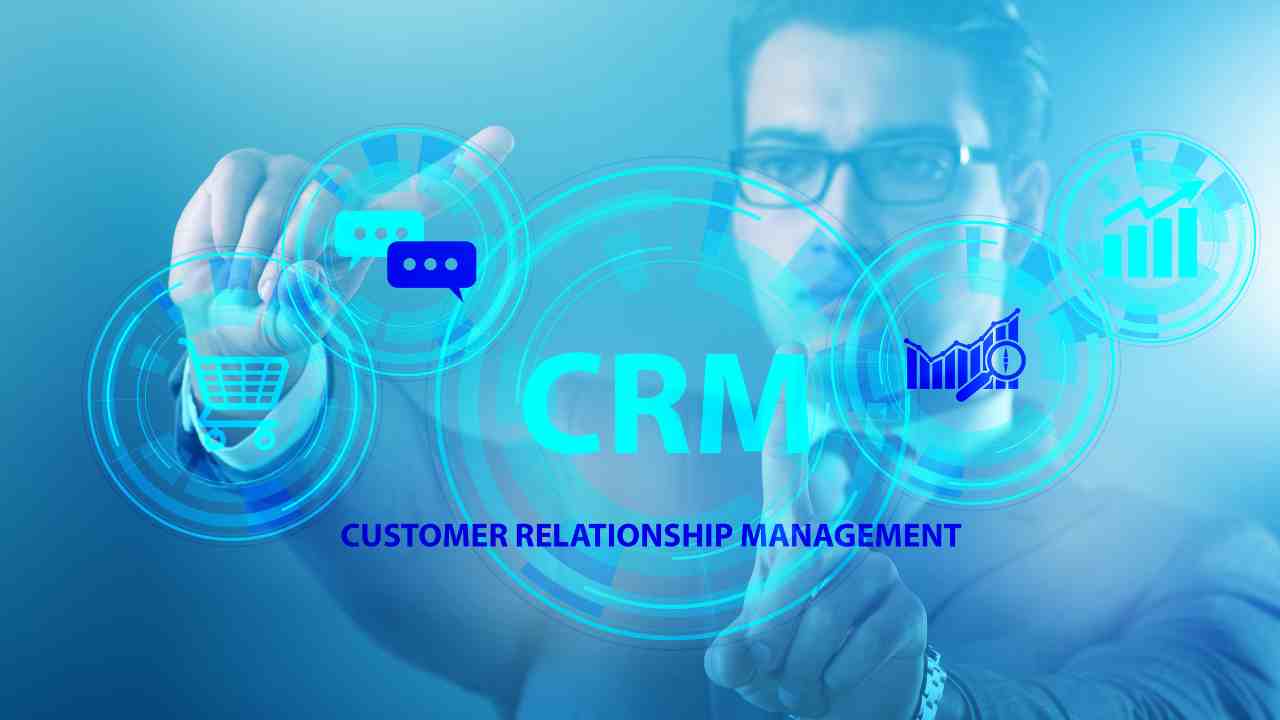Adopting Customer Centric Approach with CRM

In today’s highly competitive business landscape, companies are constantly striving to gain a competitive edge and improve their bottom line. One of the most effective ways to achieve this is by adopting a customer-centric approach. By putting the customer at the center of their business strategy, companies can better understand their needs, provide personalized experiences, and build long-lasting relationships. Customer Relationship Management (CRM) software plays a crucial role in enabling businesses to adopt a customer-centric approach. In this article, we will explore the benefits of adopting a customer-centric approach with CRM and how it can revolutionize your business.
The Importance of a Customer-Centric Approach
A customer-centric approach is all about focusing on the needs and preferences of your customers. It involves understanding their pain points, delivering personalized experiences, and building strong relationships. Here are some key reasons why adopting a customer-centric approach is essential:
- Increased customer loyalty: When customers feel valued and understood, they are more likely to remain loyal to your brand. By providing personalized experiences and addressing their specific needs, you can build trust and loyalty.
- Improved customer satisfaction: A customer-centric approach ensures that your products or services align with the expectations of your customers. By consistently meeting or exceeding their expectations, you can enhance customer satisfaction.
- Higher customer lifetime value: By focusing on building long-term relationships, you can increase the lifetime value of your customers. Loyal customers are more likely to make repeat purchases and recommend your brand to others.
- Competitive advantage: In a crowded marketplace, a customer-centric approach can set you apart from your competitors. By providing exceptional customer experiences, you can differentiate your brand and attract more customers.
The Role of CRM in Adopting a Customer-Centric Approach
Customer Relationship Management (CRM) software is a powerful tool that enables businesses to adopt a customer-centric approach. CRM systems help companies manage and analyze customer interactions, streamline sales and marketing processes, and improve overall customer satisfaction. Here are some key ways CRM can support your customer-centric strategy:
1. Centralized Customer Data
A CRM system allows you to store all customer-related information in one centralized database. This includes contact details, purchase history, communication history, and any other relevant data. Having a single source of truth for customer data enables you to gain a holistic view of each customer and their interactions with your business. This comprehensive understanding helps you tailor your products, services, and marketing efforts to meet their specific needs.
2. Personalized Customer Experiences
With a CRM system, you can segment your customer base and create targeted marketing campaigns. By analyzing customer data, you can identify common characteristics, preferences, and behaviors. This information allows you to personalize your communication and offerings, making customers feel valued and understood. For example, you can send personalized emails, recommend relevant products, or offer exclusive discounts based on individual customer preferences.
3. Streamlined Sales and Marketing Processes
CRM software automates and streamlines various sales and marketing processes, saving time and improving efficiency. For example, you can automate lead generation, lead nurturing, and follow-up activities. By automating repetitive tasks, your sales and marketing teams can focus on building relationships and providing personalized experiences. This not only improves customer satisfaction but also increases the productivity of your teams.
4. Enhanced Customer Service
A CRM system enables you to provide exceptional customer service by ensuring timely and personalized support. With access to customer data and interaction history, your customer service representatives can quickly understand customer needs and provide relevant solutions. For example, if a customer contacts your support team, the representative can access their purchase history and previous interactions to provide a more personalized and efficient resolution.
Case Study: XYZ Company
Let’s take a look at how XYZ Company, a leading e-commerce retailer, adopted a customer-centric approach with CRM and achieved remarkable results.
XYZ Company implemented a CRM system to centralize customer data and improve their understanding of customer preferences. By analyzing the data, they identified that a significant portion of their customers preferred personalized recommendations based on their browsing and purchase history. Leveraging the CRM system, XYZ Company implemented a recommendation engine that provided personalized product suggestions to each customer.
The results were astounding. Customers who received personalized recommendations were 30% more likely to make a purchase compared to those who did not. Additionally, the average order value increased by 20% for customers who engaged with the personalized recommendations. By adopting a customer-centric approach with CRM, XYZ Company not only improved customer satisfaction but also significantly increased their revenue.
Key Takeaways
Adopting a customer-centric approach with CRM can revolutionize your business and drive sustainable growth. Here are the key takeaways from this article:
- A customer-centric approach leads to increased customer loyalty, improved customer satisfaction, higher customer lifetime value, and a competitive advantage.
- CRM software plays a crucial role in enabling businesses to adopt a customer-centric approach.
- CRM provides centralized customer data, personalized customer experiences, streamlined sales and marketing processes, and enhanced customer service.
- Case studies, such as XYZ Company, demonstrate the tangible benefits of adopting a customer-centric approach with CRM.
By leveraging the power of CRM, businesses can truly put the customer at the center of their strategy and achieve remarkable results. Start adopting a customer-centric approach today with SaasExpert.ca – Your All-In-One Sales and Marketing Platform for small businesses, agency owners, and marketers.
Frequently asked questions about Adopting Customer Centric Approach with CRM.

How Can CRM Systems Help Businesses Adopt a Customer-Centric Approach? 🎯
Ah, the coveted customer-centric approach! It’s the holy grail for any business, and a CRM system is your Excalibur. CRM systems help you centralize and analyze customer data, allowing you to understand their needs, preferences, and pain points more effectively. 📊
By having this data at your fingertips, your sales, marketing, and customer service teams can tailor their efforts to meet individual customer needs, thereby not just meeting but exceeding expectations. When you understand your customer deeply, you can proactively address issues, make personalized recommendations, and generally make their lives easier and better. That’s customer-centricity in action. 👏
How Do CRM Systems Enable Personalization in a Customer-Centric Model? 👤
Personalization is the cornerstone of a customer-centric model. No one wants to be just another ticket number, right? CRM systems gather data from every interaction a customer has with your business, from sales to customer service inquiries. This data then becomes the foundation for crafting highly personalized customer journeys. 👣
Whether it’s sending a product recommendation based on past purchases or crafting personalized follow-up emails, CRM enables you to make each customer feel like they’re your only customer. And in a world teeming with generic customer service, this level of personalization can significantly differentiate your business. 🌟
Can CRM Systems Help Improve Customer Retention in a Customer-Centric Strategy? 💪
Absolutely! Customer retention is often more cost-effective than customer acquisition, and a CRM system is an excellent tool for boosting retention rates. With features like customer segmentation, targeted marketing campaigns, and feedback loops, a CRM system enables you to focus on retaining your existing customer base effectively. 🎯
By analyzing customer behavior and feedback, you can identify “at-risk” customers and proactively address their issues, thereby increasing the likelihood of retaining them. Customer-centricity means valuing each customer, and CRM helps you show that value through targeted, meaningful interactions. 🤝
How Do CRM Systems Facilitate Better Customer Service in a Customer-Centric Approach? 🛎️
Exceptional customer service is one of the pillars of a customer-centric approach, and CRM is your ticket to achieving this. With features like ticketing systems, automated responses, and detailed customer histories, CRM systems empower your customer service agents to provide quicker, more accurate, and personalized service. 📞
Imagine a customer calls with a complaint or query. With a CRM, your customer service agent can pull up their entire history with the company in seconds, allowing them to offer a more personalized and efficient resolution. Now that’s customer-centric! 💡
How Can CRM Analytics Help in Shifting Towards a Customer-Centric Business Model? 📈
Analytics is where your CRM system truly shines in guiding you towards a customer-centric approach. CRM analytics provide valuable insights into customer behavior, engagement levels, and satisfaction rates, which are critical data points in understanding what your customers truly want and expect from you. 📊
CRM analytics allow you to measure the effectiveness of your customer-centric strategies, offering a feedback loop that can be used to continuously refine and improve your approach. With robust analytics, you can move from guesswork to data-driven decision-making, ensuring that your shift towards customer-centricity is based on concrete insights. 🌟







